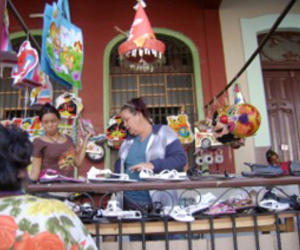Cuba inches towards market socialism
- Submitted by: manso
- Politics and Government
- 03 / 28 / 2011

27 March 2011 Last updated at 16:27 GMT.By Robert Plummer Business reporter, BBC News.Will 2011 herald major changes in Cuba? The guardians of Cuba's struggling socialist system seem to have decided that their revolution now needs a dose of evolution.
As the island prepares for its first Communist Party Congress for 14 years, to be held in April, changes to the centrally planned, state-run economy are beginning to take effect.
President Raul Castro has ruled out large-scale market reforms and clearly has no intention of abolishing the country's unique brand of tropical communism.
The very timing of the party Congress is intended to reinforce the notion of Cuba's indomitable socialist spirit in the face of the arch-capitalist US.
It is being co-ordinated to coincide with the 50th anniversary of Cuba's defeat of a US-backed invasion force at the Bay of Pigs in 1961.
Cuba's state media are already ramping up their advance publicity for the 16 April anniversary celebrations, which will "Only socialism is capable of overcoming the difficulties and preserving the conquests of the Revolution” End Quote Cuban Communist Party Congress discussion document.
But despite the symbolism, harsh reality has set in on the financial front, with the admission that Cuba can no longer afford the jobs for life and the price controls that have allowed it to maintain its near-total control of economic activity.
Debt burden
In September last year, it was announced that one million Cuban public sector employees would be laid off, although the job cuts are now expected to take longer than initially planned.
At the same time, rules limiting private enterprise were relaxed, suggesting that many former state workers will become self-employed or join workers' co-operatives.
Most recently, in February, the government said it would phase out subsidies that had kept down the prices of home-grown sugar and imported rice.
And earlier this month, the country's hard-currency convertible peso, used mainly by tourists and foreign firms, was devalued by about 8%.
Street vendor displays fruit and vegetables for sale in Trinidad, Cuba More private enterprise is to be allowed in Cuba
Obviously, the purpose of all this is to make the country more productive and balance the budget, but also to pay off more of its burgeoning foreign debt.
Shopping at state owned co-operative in Trinidad, Cuba Workers' co-operatives may gain more autonomy.
As a result, China is now pushing for Cuba to modernise its economy and has offered the benefit of its experience,for their part, Cuban ministers have realised that their country's debt mountain has become too big to service - and they intend to use the party Congress to further the reform process.
But they want the state to continue as the central economic planner, while a 32-page discussion document prepared for the Congress states that "only socialism is capable of overcoming the difficulties and preserving the conquests of the Revolution".
Dependence fears
Cuba imports 80% of its food and more than a quarter of all its foodstuffs come from the US, making it the island's number one food supplier.
Those who wish to forestall Cuba's moves towards market socialism want it to reduce this reliance on the US by looking to other Latin American and Caribbean nations for assistance.
Some have called on Argentina and other countries in the region that are owed money by Cuba - including Mexico, Panama, Brazil, Trinidad and Tobago and Uruguay - to show solidarity by cancelling its debts.
Others want Cuba to trade more with the other seven member states of Hugo Chavez's Alba group. This is a kind of economic co-operation agreement originally proposed by Mr Chavez in a bid to undermine plans for a hemispheric Free Trade Area of the Americas (FTAA).
The FTAA talks eventually collapsed of their own accord, but Alba struggles on, mostly for the benefit of various economic minnows hoping to benefit from Mr Chavez's largesse.
Apart from Venezuela and Cuba, these include Bolivia, Ecuador, Nicaragua and three English-speaking Caribbean countries - Antigua and Barbuda, Dominica and St Vincent and the Grenadines.
Source: www.bbc.co.uk/news/business-12565417
Comments